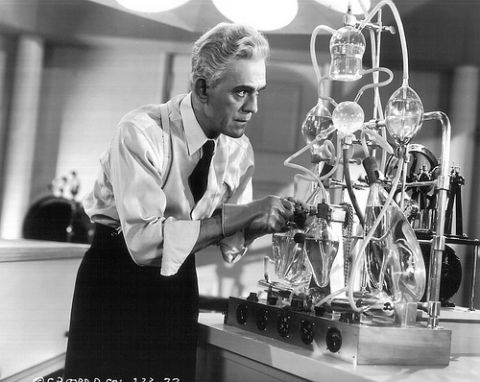The three people needed for a successful revolution
Over the weekend I caught this interesting piece on the Kottke.org site titled, The three types of specialist, and I think it is worth taking a look at if either you are at interesting in starting your own revolution, or just want to build better teams in your organization - ones that are more likely to be successful pulling off major change initiatives. And it doesn't hurt that this week here in the US we celebrate Independence Day - our most famous revolution.
The piece quotes from a Kurt Vonnegut book I'd not heard of or read titled Bluebeard, and the key passage describes one character's assessment of the kinds of people that are needed in order to open up people's minds to new ideas and get them to actually consider embracing change. Rather than simply 'smart people, 'influential people' or 'powerful people', Vonnegut offers up just a bit more detail of the skills, background, and capabilities of the three critical kinds of people needed to drive change. 
Simply put, it breaks down like this:
First - You need a true, or authentic genius. This is someone capable of generating original ideas that have not been considered previously. This is, perhaps not surprisingly, the hardest person to find.
Second - A member of the community or organization, who is respected and has some authority (either directly via position, or indirectly via more subtle and social means), such that he or she can validate, defend, and promote the possibly crazy geniuses ideas. This person makes the genius seem less scary, and begins to create an environment where it is safe for others to signal approval or agreement with the idea or proposal for change.
Third - The technician or implementer. This person has to have expertise in the specific technical, operational, or procedural area of the change, and the respect of the front-line people in that discipline whose live and jobs will be most impacted by the change. The technician needs to be able to translate the genius' plan and vocabulary into concepts and language that the organization can understand, and feels more comfortable with.
And that's it.
Genius --> Respected advocate --> Technician.
It is pretty easy to see where the absence of any of these critical roles would derail any substantial change in an entrenched organization of any kind.
Without the genius and his/her ideas, well all you have are potentially incremental and insignificant changes to existing processes and products. You know, like the 'New and Improved!' laundry detergent that is simply the same old formula in a slightly larger jug.
Without the respected advocate, the genius' ideas are not likely to get enough or lasting traction with what is almost always a skeptical and scared organization. The genius remains safely marginalized as a nut.
And without the technician you lose in a couple of areas. You might not be able to effectively take what are often abstract genius ideas and make them actionable. Plus, the true front-line people in the organization might not now the genius and might not think the respected advocate really understands their jobs and processes enough to tell them how they should be changed. The technician bridges the gap between idea and execution.
Genius --> Respected advocate --> Technician.
A pretty simple formula for building a team that can actually conceive and convince people to change.
And according to Vonnegut anyway, it's the only way to have any chance of actually pulling it off.

 Steve
Steve
Reader Comments (2)
I’d say that the types of people described above make the core of every successful campaign, whether it’s in politics, marketing or whatsoever. It’d be great if recruiters took this into account as well! But to build a productive work team you have to be able to read the personalities! Otherwise, how do you define a “respected advocate"?
Thanks Curtis for the comments. I do think these kinds of archetypes can be the basis for any successful change campaign or team. For me, I think Respected Advocate is someone that the organization or community knows and trusts, and that can be counted on to act in the best interests of that community and not necessarily their personal interests. They have to be seen as almost impartial in a way. Once they get behind a new idea, it becomes acceptable for others to follow.